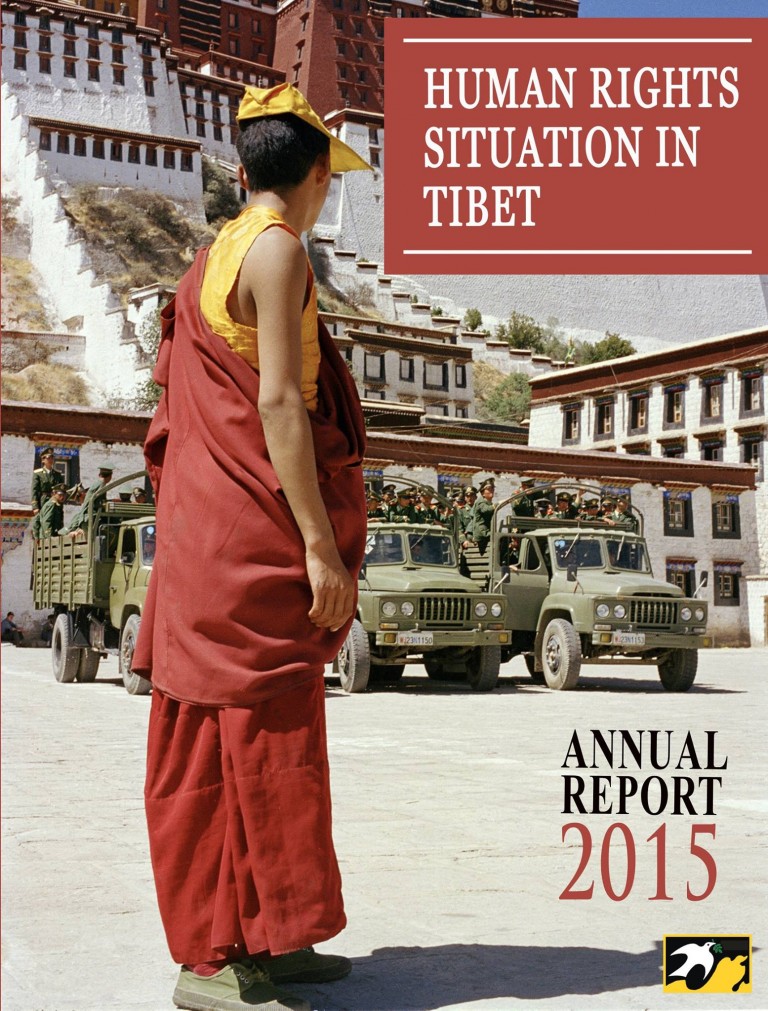 The Tibetan Centre for Human Rights and Democracy 2015 Annual Report on Human Rights in Tibet, published on February 19, highlights China’s continued failure to uphold human rights guarantees in Tibet.
The Tibetan Centre for Human Rights and Democracy 2015 Annual Report on Human Rights in Tibet, published on February 19, highlights China’s continued failure to uphold human rights guarantees in Tibet.
The report covers breaches of religious freedom, civil and political rights and the right to privacy, as well as investigating environmental concerns and the role of the international community.It concludes that, as increased international attention has been focussed on China, it has been harder for the Chinese Communist Party (CCP) to deflect attention from their actions in Tibet. They are therefore taking steps to increase legal justification for such actions, notably through the introduction of new counter-terrorism and national security legislation which seems designed to underwrite the oppression of Tibetans and other minorities.
The continued forced disappearance of religious and community leaders was brought into sharp focus in 2015, a year that marked the 20th anniversary of the disappearance of the Panchen Lama. The CCP stepped up legislation repressing religious freedom in February, releasing a document identifying 20 illegal activities related to Tibetan independence. Of these activities, several were concerned with religious practices. Collective punishment of monastic institutions that failed to comply with the regulations was recommended.
In a year that saw what the report calls “the biggest crackdown on Human Rights lawyers in recent history” in mainland China, civil and political rights in Tibet have fared no better. Solo protesters, artists, poets, and intellectuals have continued to be targeted for arrest while freedom of expression has remained stifled and freedom of movement withheld in Tibet and Tibetan-majority areas.
Following the revelations of Edward Snowden, the computer analyst whistleblower who leaked top-secret NSA documents with information about US surveillance on phone and internet communications, the CCP joined other states in widely condemning the mass surveillance programmes adopted by the USA. Paradoxically, however, the CCP went on to use evidence of such practices to implement a similar programme in Tibet. Alongside this, they began put pressure on technology companies to facilitate more violations of the right to privacy and wrote such violations into law under the guise of counter-terrorism and national security measures.
The Chinese regime has also continued to endanger Tibet’s ecosystem, reportedly “prioriti[sing] rhetoric over substance” during their participation in the Paris climate summit last year. The CCP intends to make no cutbacks on emissions until 2030 and to invest heavily in hydropower, with planned dams positioned around the edges of the Tibetan plateau.
On the international stage, supporters of Tibet in the European Union and Australia were detained after staging peaceful protests during Chinese state visits to their countries. In the case of the UK, they had their homes raided and possession seized while the Belgian president of Vrienden Van Tibet (Friends of Tibet) was told there was “no democracy” in Belgium during the visit of Chinese President Xi Jinping. Although all were released without charge, the report emphasises that it is unsettling that they were arrested in the first place.
The report re-iterates calls for the international community to apply pressure to the CCP on the issue of human rights in Tibet, and for the CCP to engage with the Dalai Lama once more.




 Print
Print Email
Email